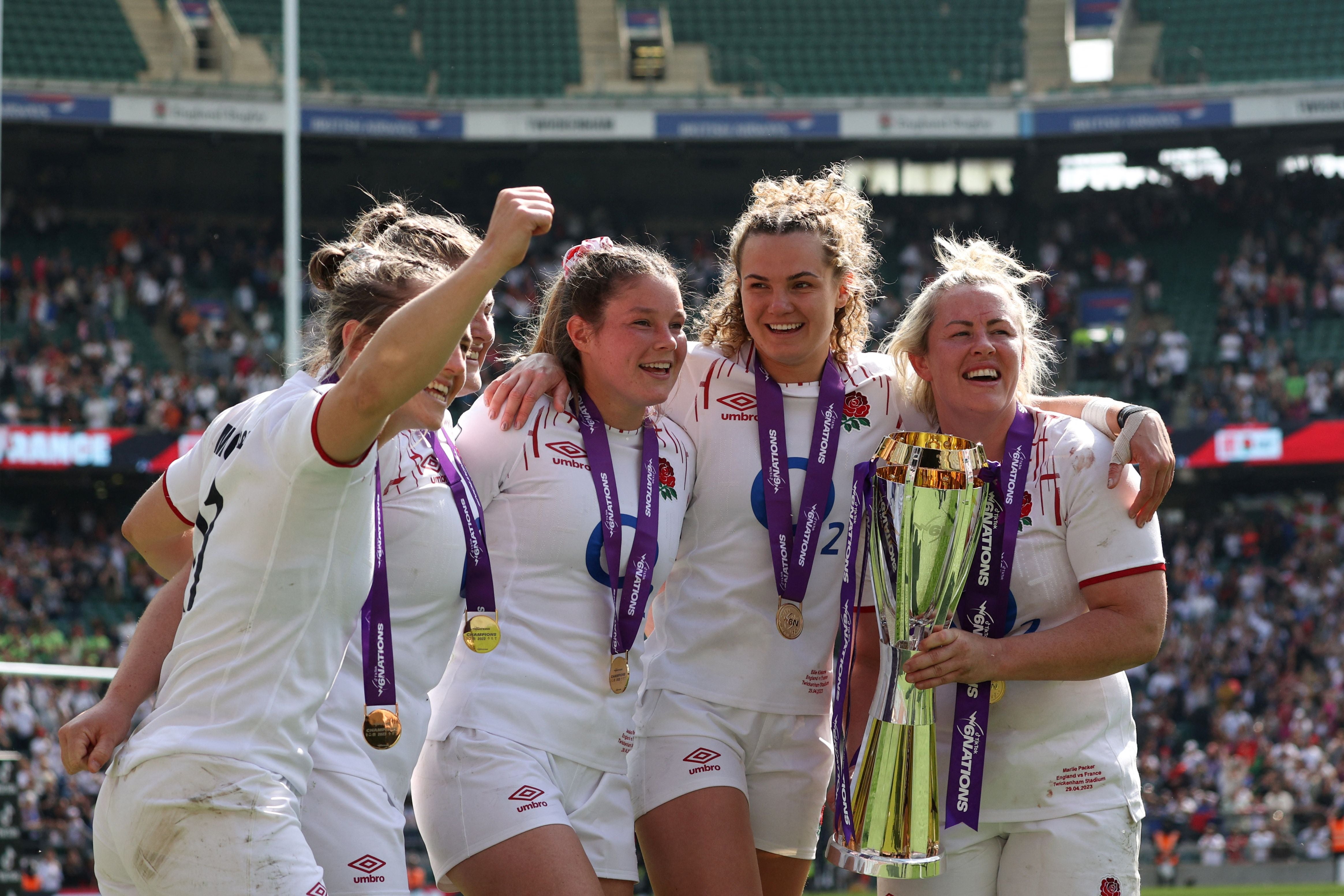Women’s Six Nations may need ‘more competitive matches’ to grow, admits CEO
England have won the last five editions of the championship and are again favourites for this year’s title

The Women’s Six Nations must become more competitive if the tournament is to grow, says its chief executive Tom Harrison.
England have won the last five editions of the Women’s Six Nations, with France finishing as runners-up in the last four campaigns and being the only other team to push the Red Roses close over that period.
While the tournament has made great strides in recent years, with all unions now contracting some players full time, increased broadcast exposure and a new title partner in Guinness, there are fears that the “lack of jeopardy” could prevent it attracting sponsors in the future.
And Harrison, who became CEO after last year’s championships, is conscious that England’s monopoly on the title may have negative impacts in the long-term.
“I do think it would be great to have more competitive matches,” Harrison said. “I think that through the investments that have happened just in the last 12 months, we will start to see some of that.

“Of course, England and France have obviously also upped their game in terms of their performance, and we have had another year of understanding how to become even better.
“I think at the moment the game is in a real development phase so it’s about providing those investment opportunities for the game to come through and see those improvements.
“Partners are very interested in seeing those improvements and seeing how teams are becoming more competitive. And let’s be honest, this isn’t the domination that you might see in Scottish football for example or something like that.
“We’ve got a couple of years where the gap has widened, I expect that gap to narrow and I think we will see sponsors asking questions in the future about ‘well, it would be much more interesting if there was real jeopardy going into the final weekend’.”
England and France meet on the final weekend of this year’s Women’s Six Nations in Bordeaux for the third successive year. The Red Roses won in Bayonne in 2022 and in front of a record crowd at Twickenham last year.
The financial details of Guinness’ partnership with the championship have not been disclosed, but build on an existing, long-running agreement with the men’s competition.

But there remains no prize money on offer in the women’s competition, though Harrison says the time may come where it is introduced.
“We are not making prize money available, but that is not to say that unions are not through their own contracting system,” explained Harrison. “It is basically at the discretions of unions.
“We are generating for the first time some revenue into the women’s game, generated by the women’s game and not using the men’s platform as a proxy for investment into the women’s game. We are starting to build that.
“So much investment is needed through the pyramids, through the structures of the six unions. Let’s make sure that we invest through those pyramids and ensure that we do some of the things in terms of narrowing the gap in performance, making sure that more girls are able to play, building more changing rooms for women and girls in men’s rugby clubs.
“We can talk about [prize money] again when we have got a big pot of money, and actually the women’s game is so well invested. At the moment, that would be going to England and France – I’m not sure that is the right answer at this point. That’s not to say that I don’t believe in prize money – I absolutely do, I just think it is one for later.”
The Women’s Six Nations starts next weekend with France facing Ireland, Wales taking on Scotland and Italy hosting England.
Join our commenting forum
Join thought-provoking conversations, follow other Independent readers and see their replies
Comments
Bookmark popover
Removed from bookmarks